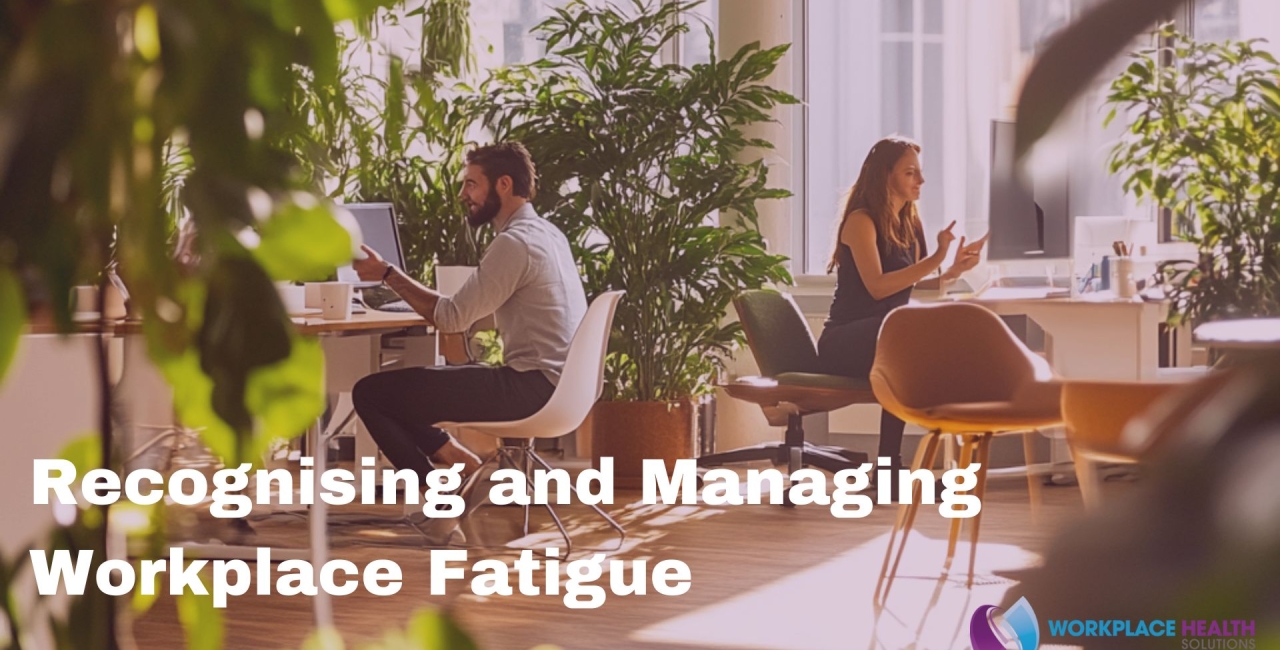Recognising and Managing Workplace Fatigue

Fatigue at work can lower productivity and increase mistakes. In office settings, this leads to wasted time and money. In high-risk industries, like construction or transportation, fatigue can cause serious accidents
Understanding Fatigue and Its Causes
Fatigue is more than just feeling tired; it's a deep sense of exhaustion that can hamper an employee's ability to work effectively and safely.
Signs of fatigue include:
- Persistent tiredness, even after rest
- Slowed reflexes and poor coordination
- Short-term memory issues and trouble focusing
- Blurred vision
- Needing extra sleep during days off
Fatigue can stem from a variety of issues including lack of sleep due to work or personal reasons. It can be short-term or build up over time. Irregular sleep schedules, like switching between day and night shifts, long work hours without enough breaks, repetitive tasks, and prolonged stress or mental strain can all contribute to fatigue.
The Impact of Fatigue in High-Risk Jobs
In industries such as construction, mining, agriculture, transportation, and manufacturing, fatigue can have severe consequences. For example, tired drivers pose a danger not only to themselves but to others on the road. Driving after 17-19 hours without sleep is comparable to having a blood alcohol level of 0.05%. Similarly, construction workers handle heavy machinery and tools that require full attention. Fatigue can lead to mistakes, endangering themselves and their coworkers.
Strategies to Manage Workplace Fatigue
Offer Nutritious Meals
Preparing healthy meals can be time-consuming, leading many employees opting for fast food, which offer little or no essential nutrients and can cause fatigue. Employers can help by providing free, healthy meals and snacks at work. This not only promotes better nutrition but also allows employees to take genuine breaks, reducing stress and boosting energy levels.
Limit Overtime
Excessive overtime can harm employees' health and decrease productivity. Working more than 48 hours a week is linked to reduced efficiency and mental well-being. Encouraging a culture that values work-life balance and setting limits on overtime can prevent burnout and maintain high performance.
Regular Health Check-Ups
Routine health assessments enable employers to monitor their team's well-being and identify signs of fatigue early. These check-ups provide employees with opportunities to discuss health concerns, leading to timely interventions and support.
Supporting Your Team's Wellbeing
Encouraging open communication, promoting physical wellness, setting achievable goals, and offering positive feedback can enhance motivation and reduce fatigue. By prioritising employee health, businesses can create a safer, more productive workplace.
Addressing workplace fatigue is essential for both employee well-being and organizational success. Implementing these strategies can help prevent fatigue-related issues and promote a healthier, more efficient work environment.
Take the Next Step Toward a Healthier, Safer Workplace!
At Workplace Health Solutions , we specialise in workplace health and wellness solutions that keep your employees safe, productive, and thriving.
From pre-employment medicals to onsite health assessments, we offer all-inclusive pricing, expert medical practitioners, and fast turnaround times—so you can focus on what matters most.
Contact:
- Jo Macaione | Project Manager
- P: (07) 3262 6138
- E:
This email address is being protected from spambots. You need JavaScript enabled to view it.

